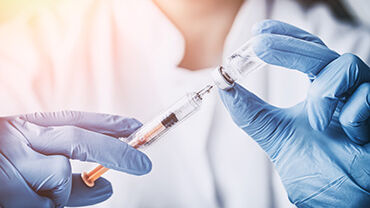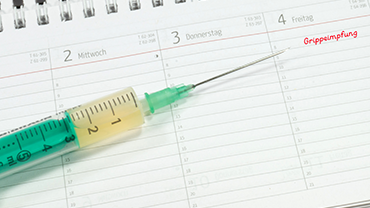Prevention and control measures for invasive Haemophilus influenzae disease
There is a safe and effective vaccine that protects against Hib and it is recommended that all children are vaccinated before they are six months old, with a booster dose around the age of one. People who have been in close contact with someone with Hib disease can be given antibiotics as a preventative measure to help stop them from developing the disease.
Immunisation is the only public health intervention capable of preventing the majority serious Hib disease.
The Hib conjugate vaccine, which consists of the polyribosylribitol phosphate (PRP) polysaccharide from the Hib capsule conjugated to a protein carrier, prevents invasive Hib disease and reduces naso-pharyngeal carriage.
The World Health Organization recommends that Hib conjugate vaccine should be included in all routine childhood immunisation programs with a three-dose primary series given at the same time as diphtheria, tetanus and pertussis vaccines. A booster in the second year of life increases protection.
A single dose is sufficient in children older than 12 months of age who have not received their primary Hib immunisation in infancy.
Most but not all European countries have included Hib conjugate vaccine in their routine childhood immunisation programmes. The national immunization schedules can be found here.
Household contacts of a case of invasive Hib have an increased risk of disease. Children under 4 years of age and individuals with increased risk of Hib infection should receive chemoprophylaxis with rifampicin. Unimmunized children should be vaccinated Hib conjugate vaccine.
Children treated for invasive Hib disease should have their Hib antibody levels checked after recovering and receive immunization as needed. If testing of Hib immunity is not an option, children below two years of age should be immunized following an episode of invasive Hib disease.
National guidelines should be consulted for the management of cases and contacts of invasive Hib disease. Other useful references are the Immunisation against infectious diseases – The Green Book National Health Service UK and ‘The Red Book’ published by the American Academy of Pediatrics.
Patients treated with intravenous antibiotics effective against Hib are no longer infectious after 24 hours.
Families of children attending the same pre-school or primary school as a patient with invasive Hib should be advised to seek medical advice if their child becomes unwell.
In case of an outbreak (two or more cases of Hib disease within 120 days) in a pre-school or primary school, chemoprophylaxis should be offered to all room contacts, including staff. All unimmunised and partially immunised children should complete their primary immunisation.






